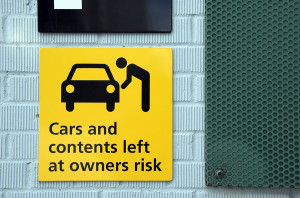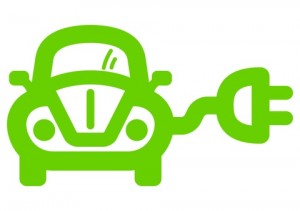Posted on 9/2/2014

Catalytic converter theft is a crime that can cost car owners hundreds of dollars. It happens in broad daylight and in public places. All thieves need is a battery operated saw and a few minutes to cripple your car and set you back hundreds of dollars. Even worse, catalytic converter theft is on the rise in the Kansas City, Overland Park and Lee's Summit area. Why? Because the catalytic converter contains valuable precious metals which can sell at scrap yards for over $100. Warning Signs If your car has been left in a public place like an airport parking lot or a parking garage for an extended period of time, you are at greater risk for catalytic converter theft. Thieves also prefer vehicles like trucks and SUVs that sit higher off the ground, making them easier to maneuver under. Most motorists newly missing a catalytic converter know immediately that something is wrong. As soon as they turn the ignition, they’ll notice that the engine sounds loud like a motorcycle ... read more
Posted on 9/2/2014

One of the interesting things about electric and hybrid cars is what’s called regenerative braking. In a car’s normal braking system the brake pads produce friction with the brake rotors to slow or stop your car. With electric or hybrid vehicles the braking system works differently. When the brake pedal is pushed the electric motor goes into a reverse mode, which slows the car. A side effect of the reverse motion is that the motor also acts as an electric generator, producing electricity, which is fed into the car batteries thus recharging them. Science! These types of brakes work better at certain speeds and in fact, work best in stop-and-go traffic. It’s this recharging system that may be causing an interesting situation. An article published in the Vancouver Sun a week ago or so caught our eye so we thought we’d pass it along. Andrew McCredie, a writer for the Sun, describes how the drivers ... read more
Posted on 9/2/2014
.jpg)
Summer is officially here and the road trip, that age-old family torture tradition, is on your horizon. It’s bad enough to endure endless, “Are we there yet? Bobby’s touching me! I have to pee again! Nevermind,” without having to suffer some sort of automotive catastrophe. Planning your dream trip to the Grand Canyon will go soooo much smoother if you take the time to prepare your car for the ride. Getting there is half the fun but only if you actually get there. Call Sallas Auto Repair at least a week or so before your planned launch just to make sure your Country Squire is up to the task. Have us check the following: Air conditioning system. Don’t just assume that when you’re deep in the Arizona desert that it will work. In fact assume that it won’t, and have it checked out. Sure it’s a dry heat but so is an oven. Flush your cooling system. See above Arizon ... read more
Posted on 9/2/2014
Did you know that today’s cars carry more computer power than the Apollo 121 Lunar Module that landed on the moon in 1969? New cars have as many as 12 networked computers and over five miles (eight kilometers) of wiring. In fact, for the last decade or so, computers have been controlling about 85% of your vehicle’s functions. Cars have sensors for manifold air temperature, coolant temperature, manifold air pressure, airflow, throttle position, vehicle speed and oxygen content. All of this electronic wizardry is pretty complicated. So how do you know when there is a problem? It’s simple – the Check Engine light comes on. The computer monitors all the sensors and uses that information to decide what to adjust such as the fuel mix, spark timing and idle speed. In addition, the computer monitors its own circuits. When it finds a fault, it turns on the Check Engine light and stores a trouble code in the computer. It can be pretty disturbing when the Check Engine light comes on. We wonder ... read more
Posted on 9/2/2014
.jpg)
Sometimes the age of a belief is reason enough to accept it as fact. Certainly, things such as apple pie being the most “American” of all desserts are widely accepted. Other things are blindly accepted without conscious thought or research, such as the fact that it is cheaper to cook at home than it is to go out, mutual funds are safer than investing in stocks and U.S. Savings Bonds are a good safe investment. With conscious thought and calculation, we find that most of these things are not as true today as they once were. Recommended Oil Change Timelines and Miles Some myths take longer to dispel than others and that is the case with recommended oil change timelines and miles. The fact that you should have an oil change every 3,000 was the agreed upon manufacturer’s guideline from most car makers. What we fail to realize is that this was applicable to cars manufactured in the 1950’s. If you pull out your car manual, something few of us do, you will likely be surpris ... read more